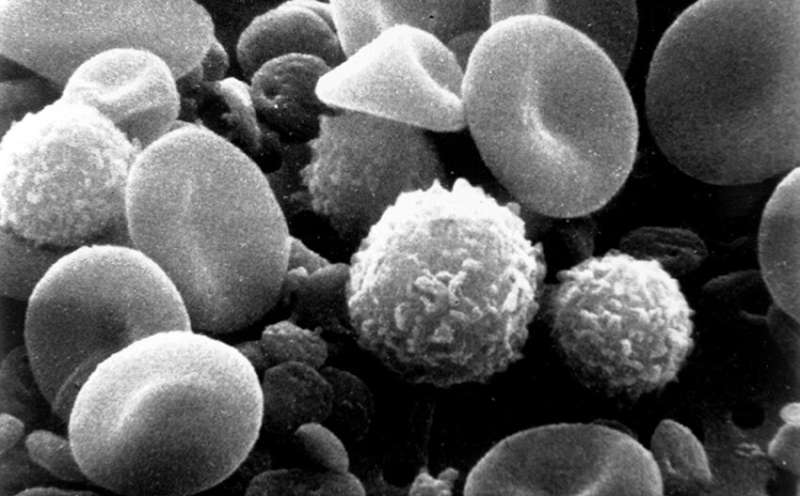This article has been reviewed according to Science X's editorial process and policies. Editors have highlighted the following attributes while ensuring the content's credibility:
fact-checked
peer-reviewed publication
trusted source
proofread
Immune cell movement worse in older females, mice study finds

According to a new study, older female mice had more immune cells entering areas of the body where they should not have, demonstrating that sex differences contribute to age-related inflammation, which should be considered in future research.
In a paper published in Journal of Leukocyte Biology today, at team of researchers led by Dr. Myriam Chimen from the University of Birmingham have found that age significantly increases the number of immune cells entering the sack that holds major organs (peritoneal cavity) in female mice, when compared to young mice or older male mice.
The findings support previous studies that suggest that the immune systems in females decline at a faster rate with age compared to those in males. Importantly, this is the first example of how age-related inflammation (inflammaging) differs between sexes in healthy models.
Dr. Asif Iqbal, Associate Professor in Inflammation Biology at the Institute of Cardiovascular Sciences at the University of Birmingham, explained, "This is a unique study that has found for the first time a clear sex-related difference in how age affects the immune cell movement. Our study in mice shows that age is a factor that needs to be considered alongside biological sex when researching inflammation, and that future research needs to look at these differences when considering new treatments that center around reducing inflammaging."
Preventative treatments needed
The findings also support evidence that some inflammation-related illnesses, such as rheumatoid arthritis, are more likely to affect women.
In aging females, the team found that there were increased numbers of specific immune cells (e.g., antibody-producing B-cells) that exited blood vessels and entered the peritoneal cavity and also the amount of pro-inflammatory agents (e.g., cytokines, chemokines) within the cavity. In addition, researchers found reduced integrity of blood vessels around the cavity in older female mice, allowing leakage of fluorescent dyes/fluid into the cavity. The team note that the increased levels of age-related inflammation in the cavity may be the cause of the leaky vessels, and could be a target for future treatments.
Dr. Helen McGettrick, Reader in Inflammation and Vascular Biology at the Institute of Inflammation and Aging at the University of Birmingham, noted, "Although our paper doesn't identify the exact cause of sex-related differences in immune system deterioration, it is likely that differences in hormones between sexes and changes in these during menopause in females play a role.
"Once confirmed in human studies, these findings demonstrate a clear need for personalized preventative treatments that differ by sex to protect our bodies as we age. With inflammation being at the root of many of our age-related illnesses, preventative treatments that could protect against everything from rheumatoid conditions to cardiovascular disease are increasingly being trialed. However, we have clearly shown that the sex dimension of any future treatments needs to be considered at the earliest stages of research to ensure agents successful translate to clinical benefit for patients."
The research team behind the study has previously published work showing that prophylactic administration of a peptide (small protein) called PEPITEM can reduce the low-level inflammatory response caused by obesity, by modulating immune cell trafficking around the body. University of Birmingham Enterprise has filed patent applications covering PEPITEM compositions and therapeutic uses.
More information: Ageing modulates homeostatic leukocyte trafficking to the peritoneal cavity in a sex-specific manner, Journal of Leukocyte Biology (2023).



















